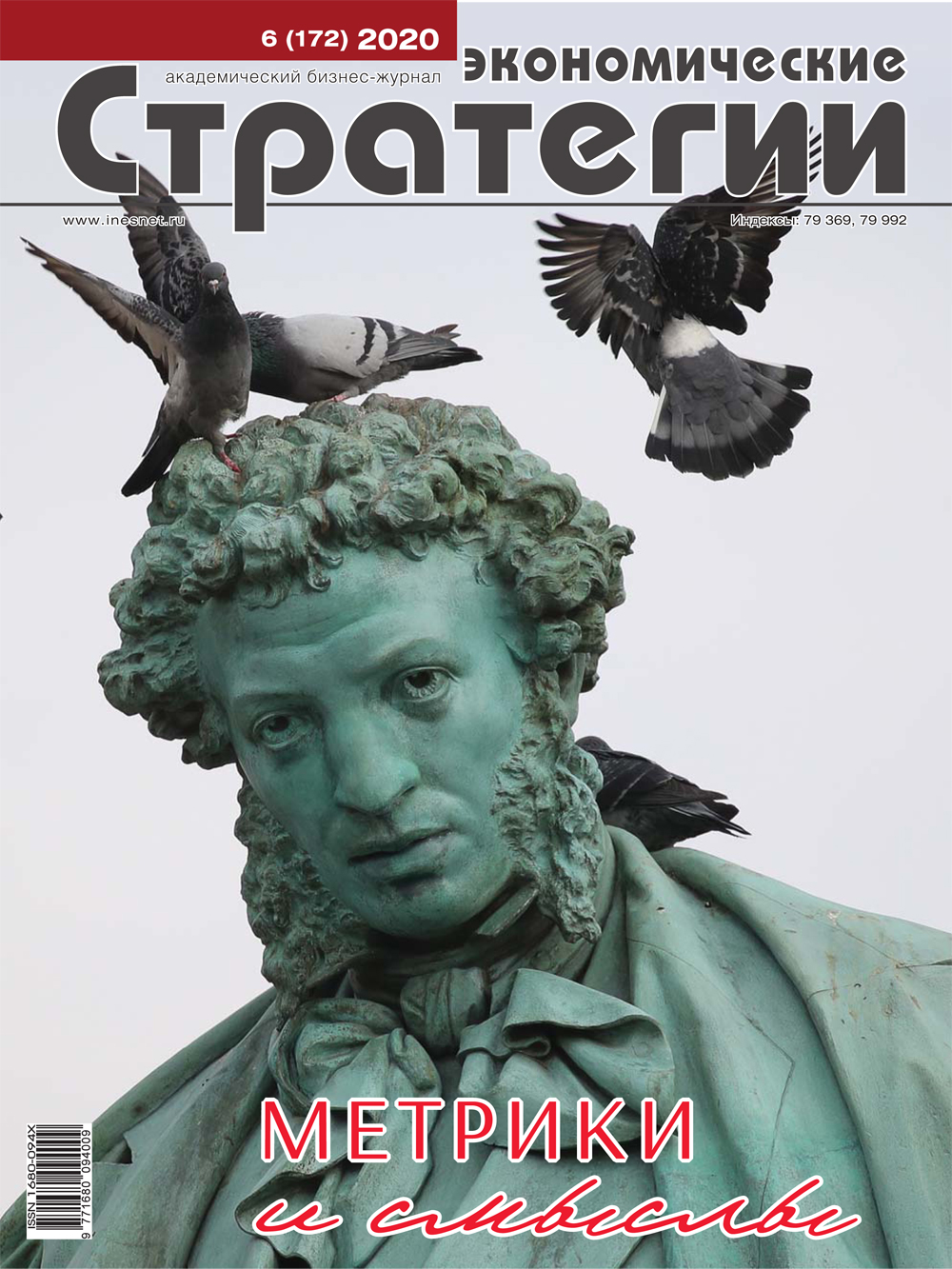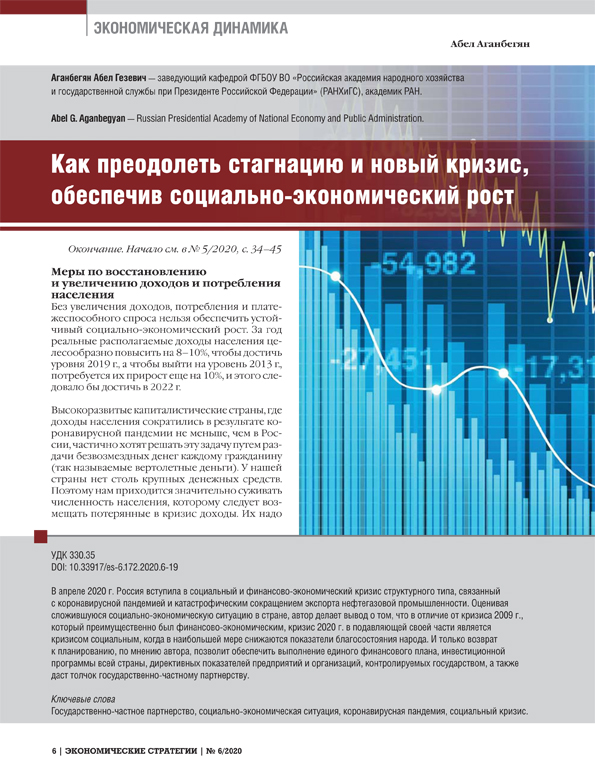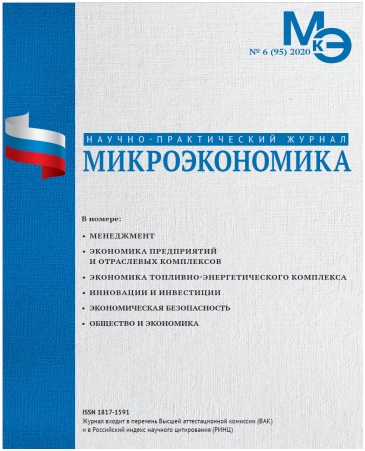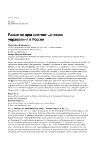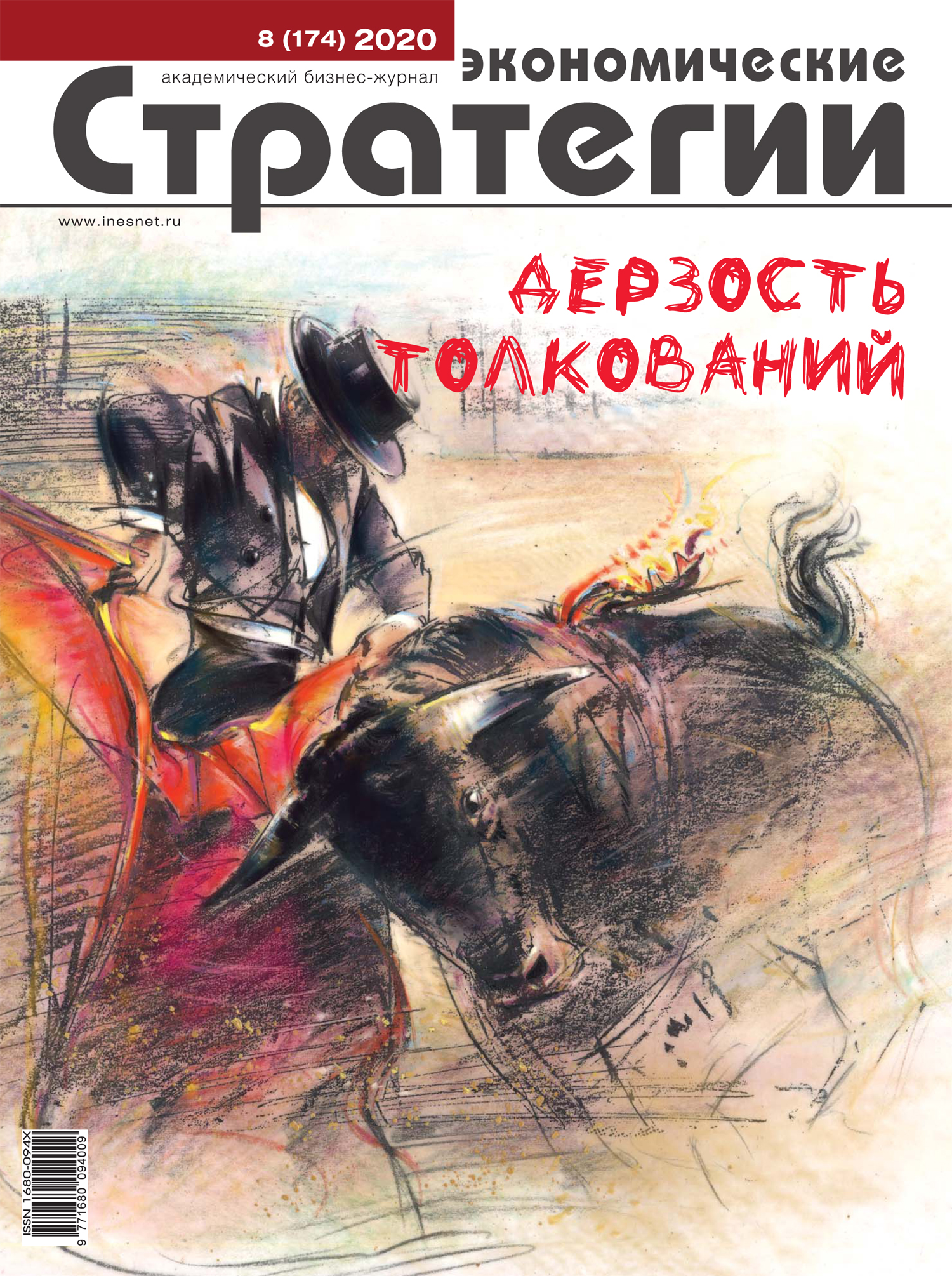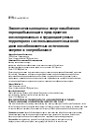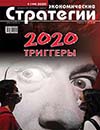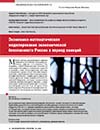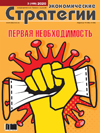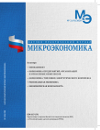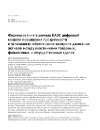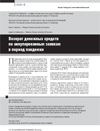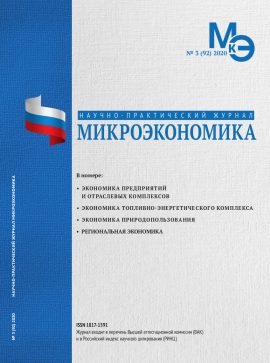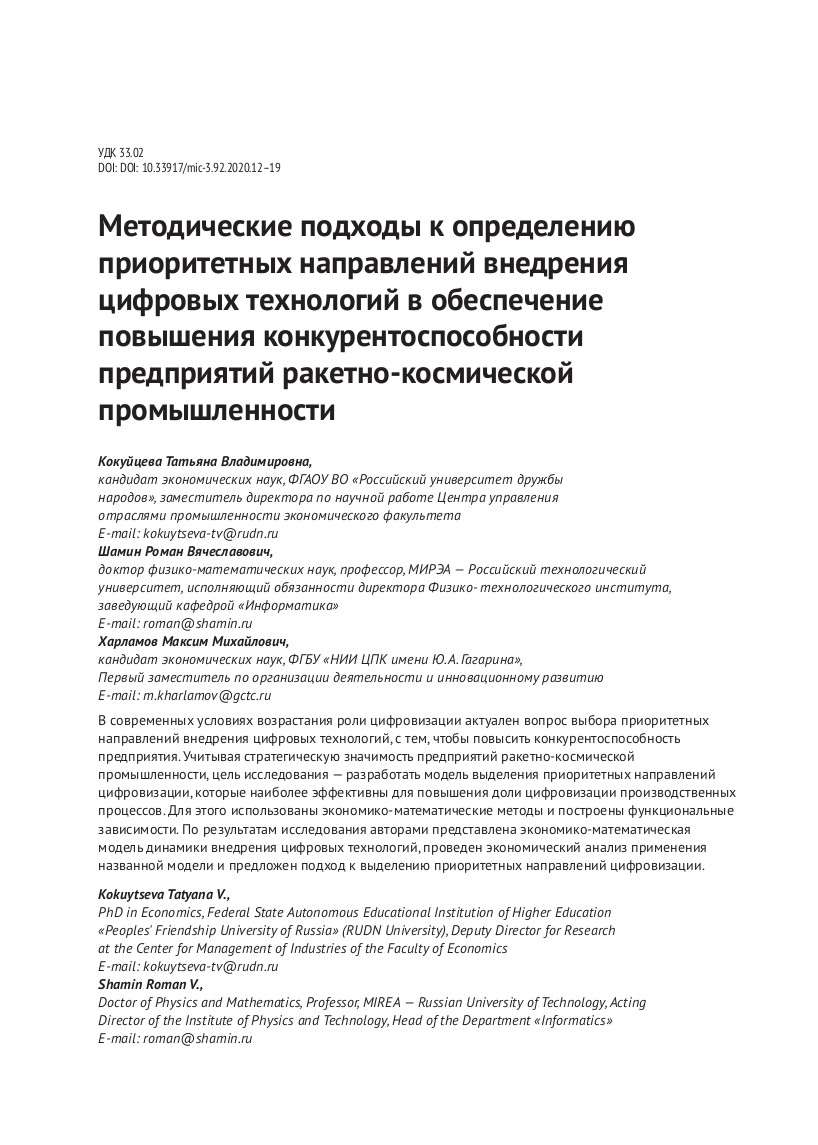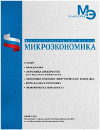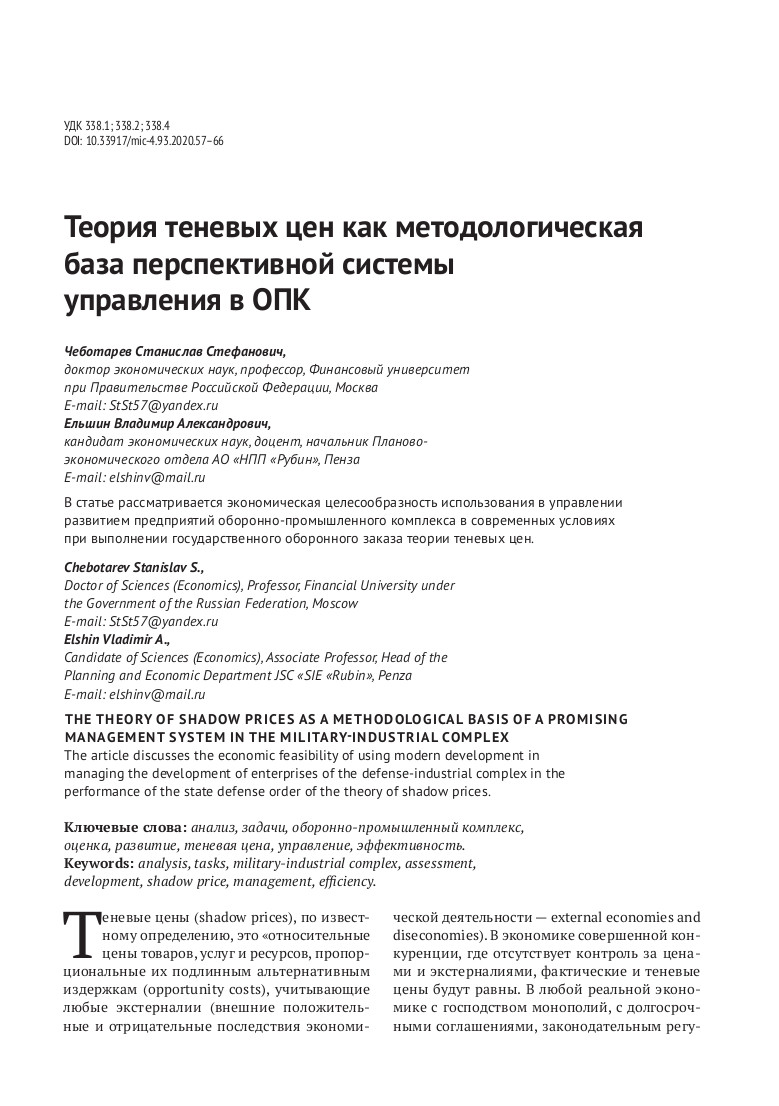How to Overcome Stagnation and New Crisis, Providing Socio-Economic Growth
DOI: 10.33917/es-6.172.2020.6-19
In April 2020, Russia entered a structural social and financial-economic crisis caused by the coronavirus pandemic and catastrophic decline of oil and gas exports. Assessing the current socio-economic situation in the country, the author concludes that, in contrast to the crisis of 2009, which was mainly financial and economic in nature, the 2020 crisis for the most part has got a social character, when indicators of the people’s well-being are declining particularly. According to the author, only return to planning would ensure implementation of an integrated financial plan, an investment program for the whole country, directive indicators of enterprises and organizations controlled by the state, as well as would impact public-private partnership.


